Description
Biganib 180mg (Brigatinib) – Cancer Treatment
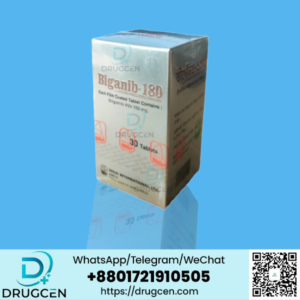
Introduction to Biganib 180mg (Brigatinib)
Biganib 180 mg (Brigatinib) is a highly effective prescription medication used in the treatment of non-small cell lung cancer (NSCLC), particularly for patients with ALK-positive (anaplastic lymphoma kinase) tumors. With its powerful mechanism of action, Biganib (Brigatinib) has shown promising results in clinical trials, offering hope to those battling advanced lung cancer.
Available worldwide, this medication is a vital option for patients who have not responded to previous treatments or are intolerant to other therapies.
What is Brigatinib (Biganib 180 mg)?
Brigatinib, marketed as Biganib 180 mg, is a potent, targeted therapy specifically designed to block the growth of cancer cells. It belongs to a class of drugs known as tyrosine kinase inhibitors (TKIs).
These drugs work by interfering with the signaling pathways in cancer cells that promote tumor growth, thereby slowing down or stopping the progression of cancer.
For patients diagnosed with ALK-positive non-small cell lung cancer (NSCLC), Biganib 180 mg provides a new line of treatment when other medications like crizotinib (Xalkori) no longer work effectively.
Biganib 180mg (Brigatinib) Mechanism of Action
Brigatinib works by inhibiting the ALK (anaplastic lymphoma kinase) protein, which plays a crucial role in the growth and spread of cancer cells in the lungs. By targeting and blocking ALK, Biganib (Brigatinib) prevents cancer cells from multiplying and spreading to other parts of the body.
This targeted action is what makes Brigatinib a key therapeutic option for patients with ALK-positive lung cancer.
Unlike other treatments, Biganib not only targets the primary mutation but also effectively addresses resistance mutations, making it a first-choice therapy for patients experiencing relapse or progression after initial ALK inhibitor treatment.
Uses of Biganib 180 mg (Brigatinib)
Biganib (Brigatinib) is prescribed for the treatment of ALK-positive non-small cell lung cancer (NSCLC). It is typically used in the following cases:
- First-line Treatment: Biganib 180mg can be used as the first treatment option for patients with ALK-positive metastatic non-small cell lung cancer (NSCLC).
- Treatment after Previous ALK Inhibitors Fail: If patients have previously been treated with other ALK inhibitors, Biganib offers an alternative when those treatments become ineffective.
- Relapsed or Progressed Disease: Biganib is used when the disease progresses after treatment with crizotinib, a first-generation ALK inhibitor, and can be a game-changer in restoring cancer control.
Disclaimer:
The information provided here is for informational purposes only and should not be considered as medical advice. Always consult with a qualified healthcare professional before making any medical decisions or starting a new treatment. The use of Biganib 180 mg (Brigatinib) should only be under the guidance of a licensed healthcare provider.
Brigatinib Prescribing Information
Before using Biganib 180mg, it is essential to follow the correct prescribing information for safe and effective treatment. Patients should start with a low dose of Biganib to ensure they tolerate the medication, gradually increasing the dosage to 180 mg once daily.
Some key points in the prescribing information include:
- Dosage: Biganib is generally taken orally, once daily, with or without food. The prescribed dose will depend on the patient’s specific medical condition and how they respond to the initial treatment.
- Side Effects: Common side effects of Biganib (Brigatinib) include diarrhea, nausea, fatigue, headache, and cough. More serious side effects, like lung inflammation (pneumonitis) or severe allergic reactions, should be monitored.
- Precautions: Patients should inform their healthcare provider if they have a history of liver or heart disease, as this can affect the way Biganib is metabolized in the body.
- Drug Interactions: Biganib may interact with other medications. Patients should inform their doctor about all medications they are currently taking, including prescription, over-the-counter drugs, and herbal supplements.
Brigatinib NF2: The Role in Cancer Treatment
Another essential consideration in the study and use of Brigatinib (Biganib 180 mg) is its connection with NF2 (Neurofibromatosis type 2). This genetic disorder can cause tumors to develop in the nervous system.
Brigatinib’s mechanism of action also offers promise in addressing NF2-related conditions, providing potential benefits beyond the typical cancer treatment landscape.
Although Biganib is not specifically approved for NF2, ongoing research suggests that it may play a role in treating cancerous growths associated with this condition, particularly those affecting the lungs. Patients with NF2 should consult their doctors for a thorough evaluation before considering Biganib as a treatment option.
Biganib 180 mg Availability in Bangladesh and Worldwide
Biganib 180 mg (Brigatinib) is available worldwide, including in countries like the United States, Canada, India, and Bangladesh. Patients can access Biganib through authorized pharmacies and healthcare providers globally.
If you’re in Bangladesh, Biganib is available at licensed pharmacies across the country, ensuring that patients have access to this vital medication for ALK-positive lung cancer.
For patients in Bangladesh, Brigatinib’s availability marks a significant advancement in the fight against lung cancer, offering hope for improved outcomes and quality of life.
Reasons to Choose Biganib 180 mg (Brigatinib) for Cancer Treatment?
- Efficacy: Biganib has shown superior results in clinical trials, particularly for patients who have developed resistance to other therapies.
- Targeted Therapy: As a tyrosine kinase inhibitor, Biganib targets the molecular root causes of cancer, helping to minimize side effects compared to traditional chemotherapy.
- Global Availability: Biganib 180mg is available worldwide, making it an accessible treatment for cancer patients regardless of location.
- Proven Safety: Biganib has been extensively studied and has demonstrated a favorable safety profile, although it is essential to monitor for potential side effects under the supervision of a healthcare professional.
Final Words for Biganib 180mg
If you or a loved one is dealing with ALK-positive non-small cell lung cancer (NSCLC), Biganib 180 mg (Brigatinib) offers a targeted, effective treatment option with the potential to slow or stop disease progression. Available worldwide, this medication provides a significant advancement in the management of advanced lung cancer and offers hope for patients who may have otherwise exhausted all other options.
Before starting treatment with Biganib, always consult your healthcare provider to ensure that it is the right medication for your specific condition and medical history.
Disclaimer:
The information provided here is for informational purposes only and should not be considered as medical advice. Always consult with a qualified healthcare professional before making any medical decisions or starting a new treatment. The use of Biganib 180 mg (Brigatinib) should only be under the guidance of a licensed healthcare provider.

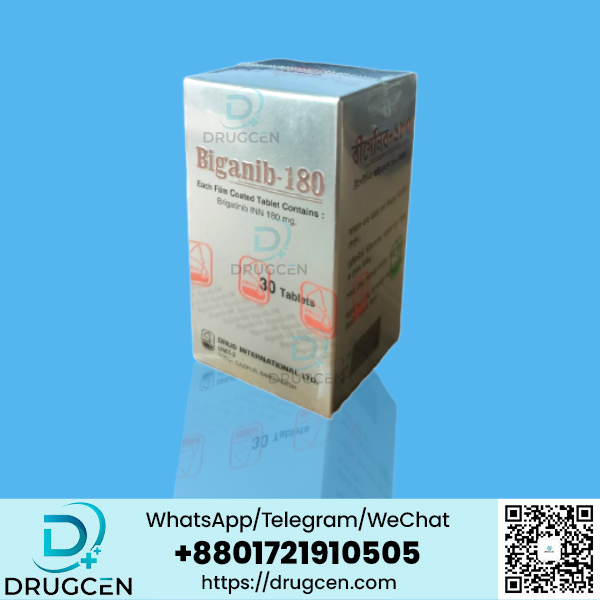
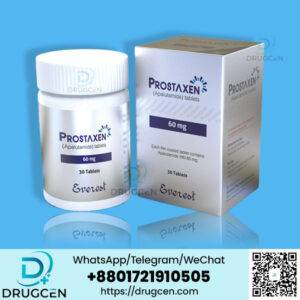
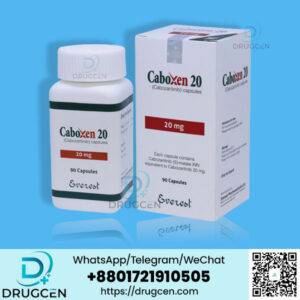
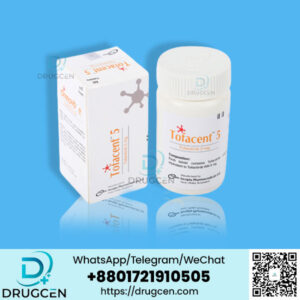
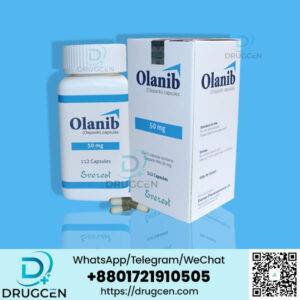
Reviews
There are no reviews yet.